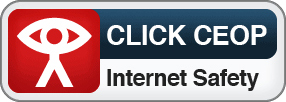Stockport Online Safety Hub
Click here for trusted digital safety advice for caregivers.
Online Safety Advice for Parents and Carers
Cyber Safety - Some simple ways to keep children safe online
-
Get to know your child’s online habits. Children are inquisitive. They will look to explore the internet as much as they do the real world. Knowing the sites they go to, the people they meet there and what they do will help to keep children safe.
-
Stay alert to any sudden changes in mood or appearance, or to any major change in habits or to increased secretiveness. These are often tell-tale signs that something is not right.
-
Keep lines of communication open - tell your child they can always talk to you or another trusted adult, such as a teacher, if they do end up in some sort of trouble on the internet. Make children aware that there are things on the internet which may distress them.
-
Spend some time surfing the internet yourself. The more that you know about the internet, the better able you are, in turn, to help your child navigate around it without coming to any harm.
-
Install internet filtering software showing a Child Safety Online Kitemark on your computer. Filtering products with a Kitemark have been independently tested to provide a simple and effective means of support to parents, helping to ensure that a child’s online experience is a safe one. The Kitemark scheme is sponsored by the Home Office and Ofcom.
-
Be aware of professional sources of help. These include:
-
Thinkuknow: The main UK Government website with advice for parents on how to keep children safe online.
-
The Child Exploitation and Online Protection Centre (CEOP) is the Government body dedicated to eradicating abuse of children. Concerns about inappropriate contacts between a child and an adult, including online, can be reported directly to CEOP (by clicking the link below).

-
The Internet Watch Foundation (IWF) works to remove illegal material from the internet. If you have found any material you believe to be illegal e.g. child sex abuse images, other obscene material or material which incites racial hatred, you can report it to the IWF at the link above.
-
A number of specialist websites contain general advice that may be of help to parents. These include NSPCC, Action for Children, Barnardos, and the Anti-Bullying Alliance.
-
Other sites can offer parents support on broader issues. This includes Family Lives, Childnet, Safer Internet Centre and Internet Matters.
-
